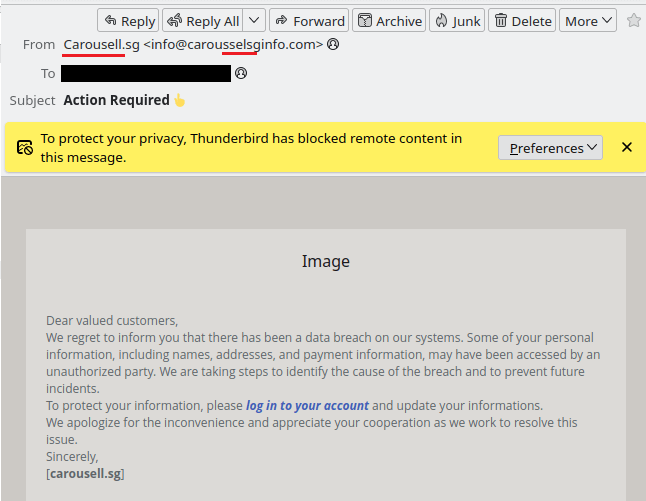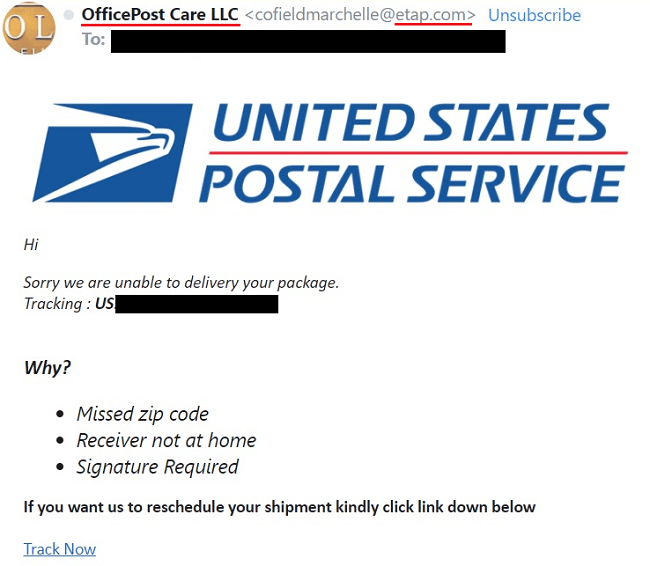What is “Trustworthy Foreign Partner” Email Spam
Subject: Hi
From. Paul Matondi
Tel: +27 844283910,
Dear Friend
I hope this message finds you well. We discovered your contact information during our search for a trustworthy foreign partner who can assist us in a critical matter. Please accept our apologies if this email causes any discomfort, as we are reaching out to you without prior acquaintance.
My name is Paul Matondi, and I am reaching out on behalf of my family. Due to the political crisis in Zimbabwe, we are currently refugees in South Africa and urgently need your assistance.
Our father, Sir Clifford Matondi, was a prominent farmer in Zimbabwe who opposed President Robert Mugabe’s land policies. As a result, our farm was destroyed, and our father was severely beaten, leading to his death. Before he passed, he deposited $30 million in a South African financial institution for purchasing farming equipment.
As refugees, we cannot access these funds. We seek your help to transfer the money out of South Africa by standing as our father's beneficiary, facilitated by his financial attorney.
In appreciation, we offer you 35% of the total funds, with 5% allocated for transfer-related expenses. The remaining 60% will help us start a new business in your country with your support.
Please respond if you are willing to assist, and we will provide further details.
Thank you and God bless,
Paul and Sandile Matondi(On behalf of the Matondi Family)
Trustworthy Foreign Partner email spam is a common scam that preys on individuals looking to make easy money by partnering with a foreign entity. These emails typically promise large sums of money in exchange for the recipient’s help in transferring funds or personal information. However, these offers are almost always too good to be true and are often used to trick individuals into giving away sensitive information or sending money to scammers.
These spam campaigns can infect computers in a variety of ways, including through malicious links or attachments in the email, or by tricking recipients into providing personal information that can be used for identity theft. Interacting with Trustworthy Foreign Partner email scams can lead to a variety of risks, including financial loss, identity theft, and the potential for malware infection on your computer. It is important to be cautious when receiving unsolicited emails offering large sums of money or promising quick riches, as they are often a ploy to steal your information or money.

How to stop email spam like “Trustworthy Foreign Partner”
You can use an anti-spam filter which will block most known sources of spam before they even reach your inbox. MailWasher is a program you may try. It filters spam and lets you preview emails on a server without downloading them onto your computer. MailWasher has customizable spam filters, uses bayesian filtering and works with all major email programs: Outlook, Outlook Express, Thunderbird, GMail, etc.
Types of spam email
Spam email messages can be approximately divided into three categories: those that prompt you to download and run something, those that ask for your personal data, and those asking you to make payments. Let’s take a closer look at each one so we can better protect ourselves from these scams.
-
Emails with attachments
In the first case the email contains an attachment which it prompts you to open. Those attachments may consist of executable files or they may be Microsoft Word or Excel documents containing malicious macro scripts. Once you launch the executable file or allow the document to run its macros, malware downloads onto your device and wreaks all kinds of havoc with it.
The malware may range from adware showing extra ads on your browsers to ransomware that encrypts your files and aks for payment to decrypt them.
-
Phishing emails
The second type of spam (phishing emails) try to trick you into entering your name, logins, passwords, credit card details, etc. on what you think are legitimate and respectable websites.
Those emails usually pretend to be messages from well-known websites that you are probably registered on, and prompt you to follow a link to their site for some reason (for example, there is something wrong with your account). The provided link leads to fake site of course, and the data you enter ends up in the hands of cybercriminals.
-
Advance-fee scam and sextortion scam emails
Finally there are the emails urging people make payments. These can be further divided into two types: the first type, asking people to invest into something, to pay some money now and get back much more later (the advance-fee scam); the second one, scaring people into paying to prevent something bad from happening.
An example of the first one is the well-known Nigerian Prince email. A example of the second is sextortion scam: emails that claim that the email author has access to the victims’s web cam and has the victims intimate videos, which the criminal threatens to publish unless paid off.

How to find out that the email is scam

- Check the sender’s address – if the address doesn’t match up with what you expect from that company, then it’s very likely that the email is scam. Be aware though that the sender address can be faked, so if the address looks legitimate it is not guaranteed that the email is legit.
- Look for spelling and grammar mistakes and weird phrasing – real emails from reputable companies are far less likely to have those.
- Watch for urgent requests – legitimate companies will never ask customers for sensitive information such as credit card numbers via email, so if an email suddenly asks for urgent action like requesting payment details within few hours, chances are high this could potentially be a scam attempt.
How to protect yourself from email scam
- Use an email filtering service – email filtering services like MailWasher Pro allow you to filter out unwanted messages before they reach your inbox. These services use sophisticated algorithms to identify suspicious content in incoming emails and block them automatically so that only legitimate messages make it through the filter.
- Avoid clicking on suspicious links – if you receive an email with a link that looks suspicious, do not click on it! Even if the sender appears familiar, chances are high that the link is malicious and could lead you down a path of malware infection or identity theft. It is best not to open any unknown links at all.
- Don’t respond directly – never reply directly to spam emails as this will confirm for spammers that your address is active which may result in more unsolicited mail being sent your way. Instead, mark these messages as “Spam” within your email client/service provider so that their filters can better detect similar types of mail next time.
- Keep software up-to-date – make sure all software installed onto devices such as computers and smartphones is kept up-to date with latest security patches released by developers; this helps reduce risk posed by cyber criminals who exploit vulnerabilities found in outdated versions of programs including email clients.
- Use anti virus protection – install reputable antivirus solutions onto any device receiving emails; most modern day anti viruses come equipped with advanced features such as real time scanning which help detect potential threats immediately upon opening files attached to emails.
